uniform distribution python
import numpy as np
import matplotlib.pyplot as plt
from scipy.stats import randint
np.random.seed(11)
Example 1 Random Numbers 0 to 1
data = np.random.uniform(size=250)
print(data)
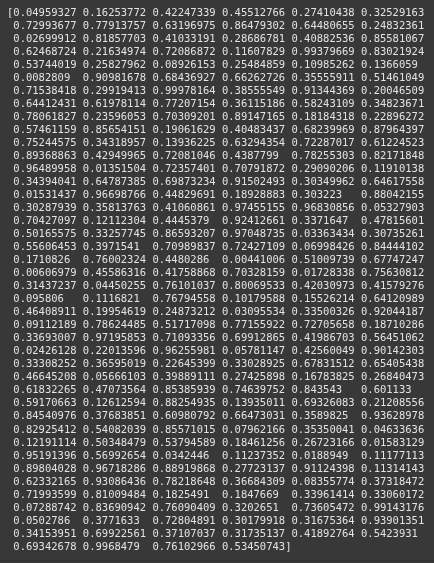
Example 2 Generate Dice Rolls
n_rolls = 1000
rolls = np.random.randint(1, 7, size=n_rolls)
print(rolls)
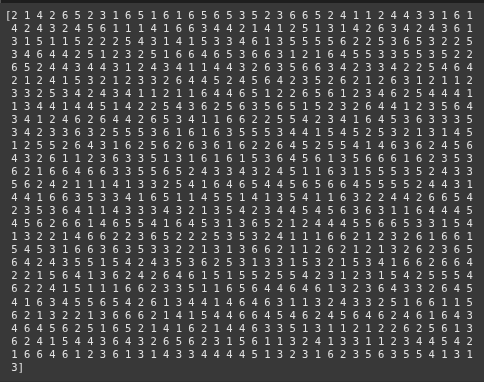
Example 3 Data Points
# Calculate the mean, variance, and standard deviation
mean_rolls = np.mean(rolls)
print(mean_rolls)
var_rolls = np.var(rolls)
print(var_rolls)
std_rolls = np.std(rolls)
print(std_rolls)
Example 4 Histogram Plot
# Plot the histogram
plt.hist(rolls, bins=np.arange(1, 8) - 0.5, edgecolor='black', rwidth=0.8)
plt.xlabel('Dice Value')
plt.ylabel('Frequency')
plt.title(f'Histogram of {n_rolls} Dice Rolls')
plt.xticks(np.arange(1, 7))
plt.grid(axis='y', linestyle='--', alpha=0.7)
# Show the plot
plt.show()
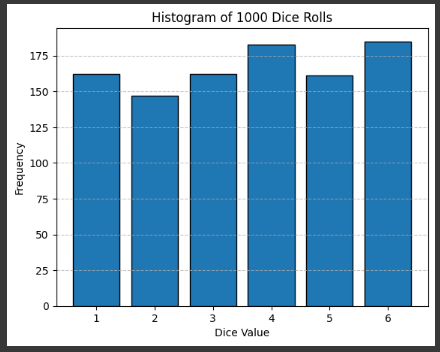
Example 5 Calculate PMF
dice_distribution = randint(1, 7)
values = np.arange(1, 7)
# Calculate the PDF using SciPy (for a discrete uniform distribution)
pmf_scipy = dice_distribution.pmf(values)
# Plot the PMF using SciPy
plt.figure(figsize=(12, 6))
plt.bar(values, pmf_scipy, width=0.5, edgecolor='black', alpha=0.7)
plt.title('PMF of Dice Rolls (SciPy)')
plt.xlabel('Dice Value')
plt.ylabel('Probability')
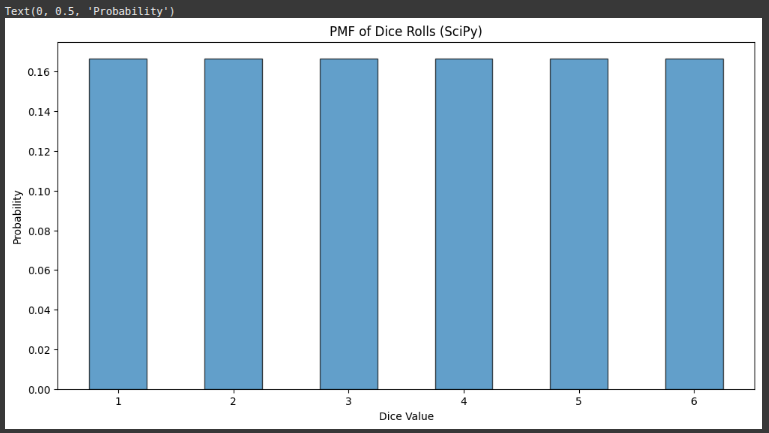
Example 6 Calculate CDF
# Calculate the CDF using SciPy
cdf_scipy = dice_distribution.cdf(values)
# Plot the CDF using SciPy
plt.figure(figsize=(12, 6))
plt.step(values, cdf_scipy, where='post', label='CDF', color='b', marker='o')
plt.title('CDF of Dice Rolls (SciPy)')
plt.xlabel('Dice Value')
plt.ylabel('Cumulative Probability')
plt.grid(True)
plt.tight_layout()
plt.show()
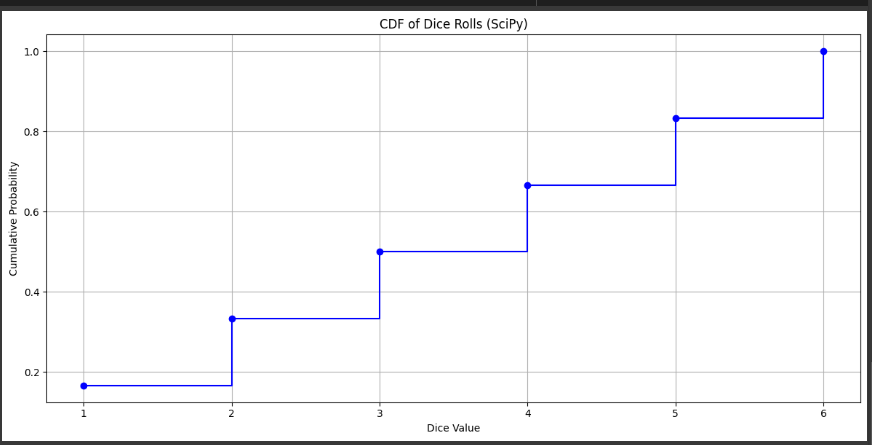
Ryan is a Data Scientist at a fintech company, where he focuses on fraud prevention in underwriting and risk. Before that, he worked as a Data Analyst at a tax software company. He holds a degree in Electrical Engineering from UCF.
